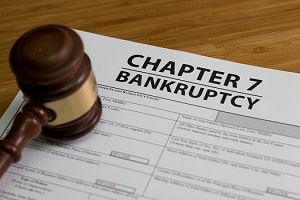Types Of Loans That Bankruptcy Does Not Discharge
If you are struggling with debts, bankruptcy can seem a very appealing opportunity to pay off some of your loans. However, there are certain loan debts that bankruptcy does not alleviate when you file. Learn what they are and how a bankruptcy lawyer can assist you in the filing.
The Kinds Of Loans That Remain In Bankruptcy
Non-dischargeable debts cannot be cleared by a bankruptcy proceeding. These debts include some student loans, state, federal, and local taxes, child support, and alimony.
Objections To Discharge
There are some debts that cannot be discharged if the creditor objects to them. These can include debts that arose as part of a marital settlement or divorce.
If a debt was incurred through a fraudulent act, or debts were from willful and malicious acts against someone else’s property or person, they too are subject to an objection. There will also be objections to debts that were a result of embezzlement, theft, or breaching fiduciary responsibility.
In the above cases, the creditor may or may not object, and that can decide whether they are exempted or not.
Malfeasance & Omission
Any debt that you’ve incurred resulting from intentionally harmful actions cannot be discharged. The omission of these when filing for bankruptcy will also not discharge them. Debts from frauds, Ponzi schemes, or attempts to hide crucial information are just a few examples.
Personal Injury
Chapter 7 bankruptcy does not discharge debts that are due to personal injury caused by the debtor being intoxicated and operating a motor vehicle. In Chapter 13 however, debts are not automatically dischargeable. Those stemming from personal injury cases have to be included in the payment plan. As always with Chapter 13 bankruptcy, these should be paid before the discharge.
Credit Cards & Luxury Goods
The debtor may have used their credit card to purchase luxury items from one person within 90 days of filing for bankruptcy. The creditor can object to the exemption in this case.
Cash advances made within 70 days of filing for bankruptcy may also become non-dischargeable.
Student Loans
In general, student loans are non-dischargeable. However, bankruptcy can discharge certain student loans. It can discharge debt where the amount was higher than tuition fees, study materials, and classrooms. Loans for unaccredited colleges and training programs may also be discharged. Loans to cover living expenses for medical and dental residencies may also be dischargeable.

Students enrolled in less than half of the expected full-time course may also have their loans discharged. They are still expected to pay for student loans but may be considered similar to consumer debt. In short, they may have these forgiven when they file for bankruptcy.
Additional Reasons
There are other reasons why a court may declare items as non-dischargeable. Some examples include where a debtor hides assets, transfers assets, or destroys financial records to hide information from creditors.
Seek Help From A Bankruptcy Attorney
Loans that bankruptcy cannot discharge may place more financial strain on you. If that’s the case, then it’s best that you seek legal help. For assistance on bankruptcy matters, consult with Austin Bankruptcy Lawyers. The firm has bankruptcy attorneys who can walk with you and help you go through the proceedings.
Summary
Loans that trustees and creditors object to may be non-dischargeable. Moreover, debts that you omit from your list when filing will not be discharged. Other loans that bankruptcy does not alleviate are luxury goods, debt from intentional actions that cause harm, and some student loans.
Dealing with overwhelming debt may be difficult, but you can always ask for legal assistance. If you need help alleviating your debts, it’s a good idea to consult with Austin Bankruptcy Lawyers. They can help you determine which debts you can alleviate and plan accordingly.
& Let’s Discuss How We Can Best Help Eliminate Your Specific Financial Struggles!




